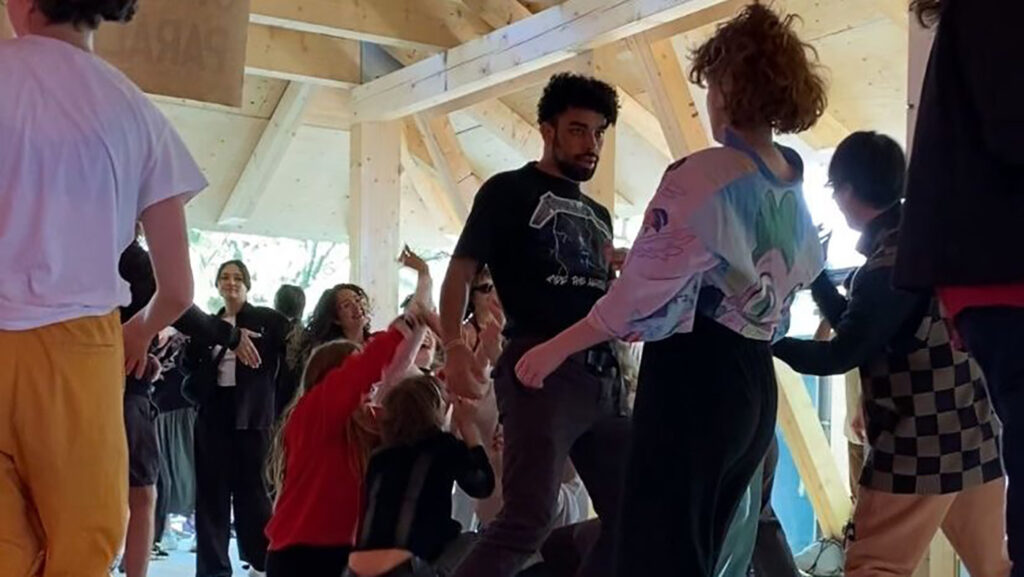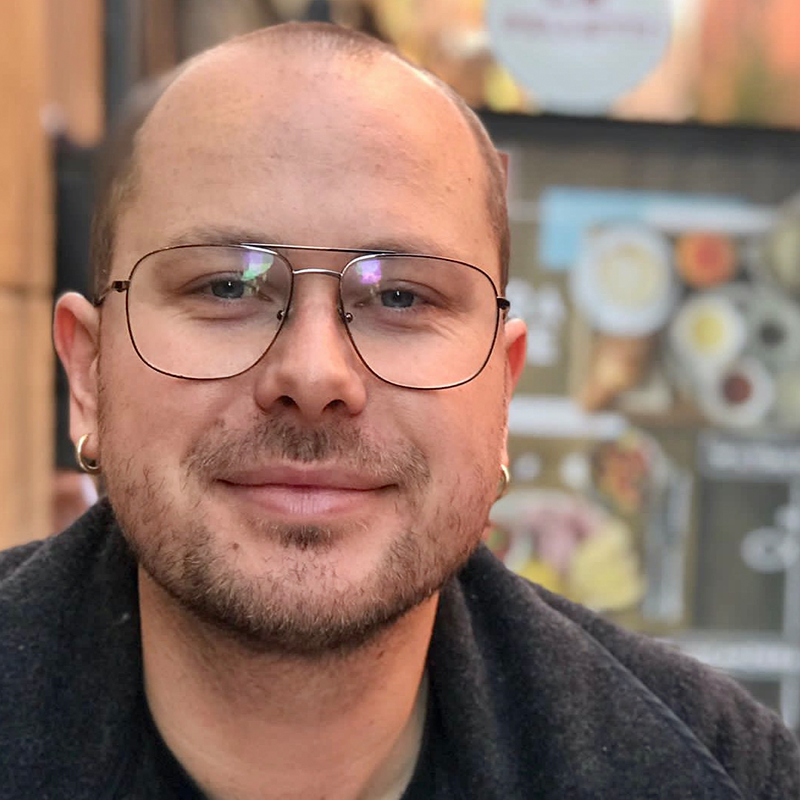It’s shortly after 9 a.m. on a sleepy public holiday at the midpoint of the Theatertreffen festival, and only the most dedicated of tourists are already pounding the pavements in Berlin city centre. But in a leafy square, round the corner from Checkpoint Charlie, high-octane reggaeton is pumping from within a plywood art installation-meets-festival tent — and several dozen young theatre-makers from around the world are forgoing a lazy morning and instead beginning the day with an energetic dance party. It is chaotic and loud; several languages are spoken; I don’t know who is who — but helpless in the face of their infectious energy, I abandon my journalist’s notebook and join the conga line.
This is the Radical Playgrounds creative space attached to the Gropius Bau art gallery — and these are the participants of the International Forum. This is a project under the Theatertreffen umbrella which invites 29 theatre-makers from all over the world to Berlin for two weeks to attend workshops, exchange ideas and watch theatre. Among them are performers, directors, dramaturgs and scenographers, with over a dozen countries represented and languages spoken — but what ties them together is a desire for community and collaboration.
No more mindset of productivity
Among them is Selena Lyu, an independent theatre-maker from Shanghai. She sees her work as an attempt to move away from a mindset of productivity. “I used to be very project-oriented,” she explains. “You apply for funding, do the project — done. But I felt vulnerable and small working like that.”
To fight this feeling, she and five others founded a leaderless, de-centralised theatre collective with a focus on site-specific performance where all of them take on multiple roles. “When we perform as a collective I feel so empowered,” Selena says. “As a group of young women, we can be provocative; we can be flirtatious. We can nurture a community — that is much more important than any project.”
A busy morning of workshops commences
Once the dust has settled from the dance party, a busy morning of workshops commences. One group of participants, led by Iranian director and playwright Amir Reza Koohestani, are working on a piece in which they perform personal diary entries they all wrote one day in April in their hometowns — including Tehran, Barcelona and Hamburg. This attempt to find creative similarities and universality even among highly distinct stories seems like a radical rejection of one-person autofictional theatre.
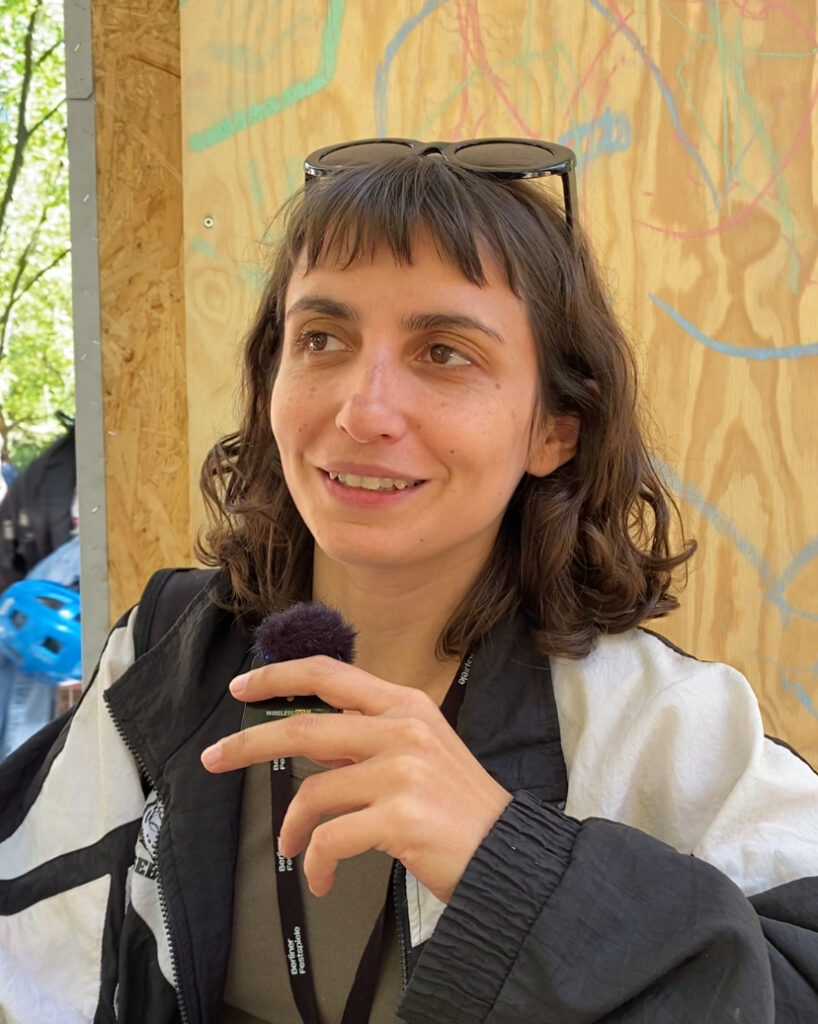
Among the diarists is Buenos-Aires-based Dana Crosa who describes herself as an “everything-maker.” “I started out as an actress,” she explains. “But I saw that everyone around me in other roles in the theatre was male. At some point I thought I have to use my voice as well — and I started to work in other fields as an act of revenge.”
For Dana, the relationships between theatre creatives is the most important thing: “In Argentina we don’t worry about who is the director; who is the dramaturg; who is the scenographer. Of course that decision needs to be made at some point — but when we start out, we just find people who we want to work with.”
“A dialogue between cultures”: Politics and responsibility in theatre
Jorge Ernesto Barrón Morales, a director and actor from La Paz, Bolivia, believes that an obsession with clearcut roles can hamper creativity: “In Germany, the division of work is very established. If this process was more collaborative maybe there could be more diverse approaches to creating theatre.”
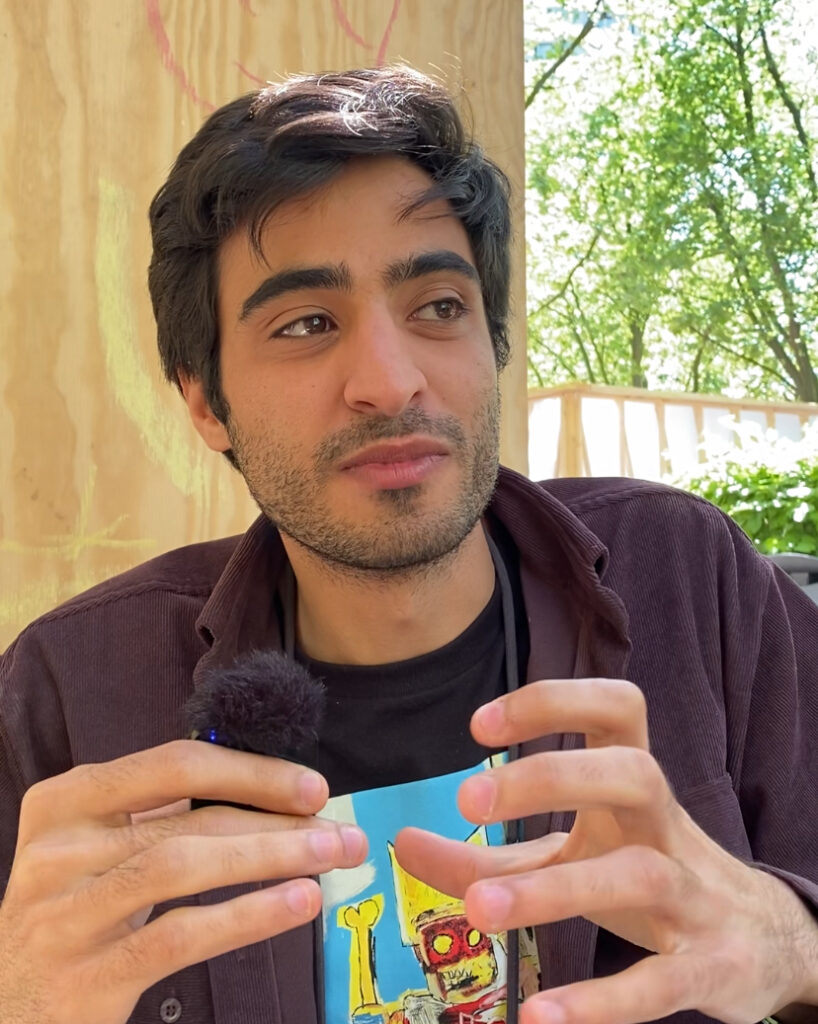
Another hotly-discussed topic in the workshops is the responsibility that theatre-makers have to engage with local and global political issues. Frankfurt-based Iranian interdisciplinary artist and activist Farhan Sonboldel tells me how he used technology to reach a wider audience for his work during the wave of civil protests in Iran that began in late 2019.
To keep physical protests alive in virtual reality
“Theatre was disconnected from social events and political events before 2019,” he tells me. He and his group of performers attempted to bridge this divide: “We wanted to project our oppressed bodies into cyberspace using new technologies. For example, one of my projects was about a group of women in Tehran who protested against wearing the hijab. My group and I added some of the locations of the protests to Google Maps — to keep these physical protests alive in virtual reality.”
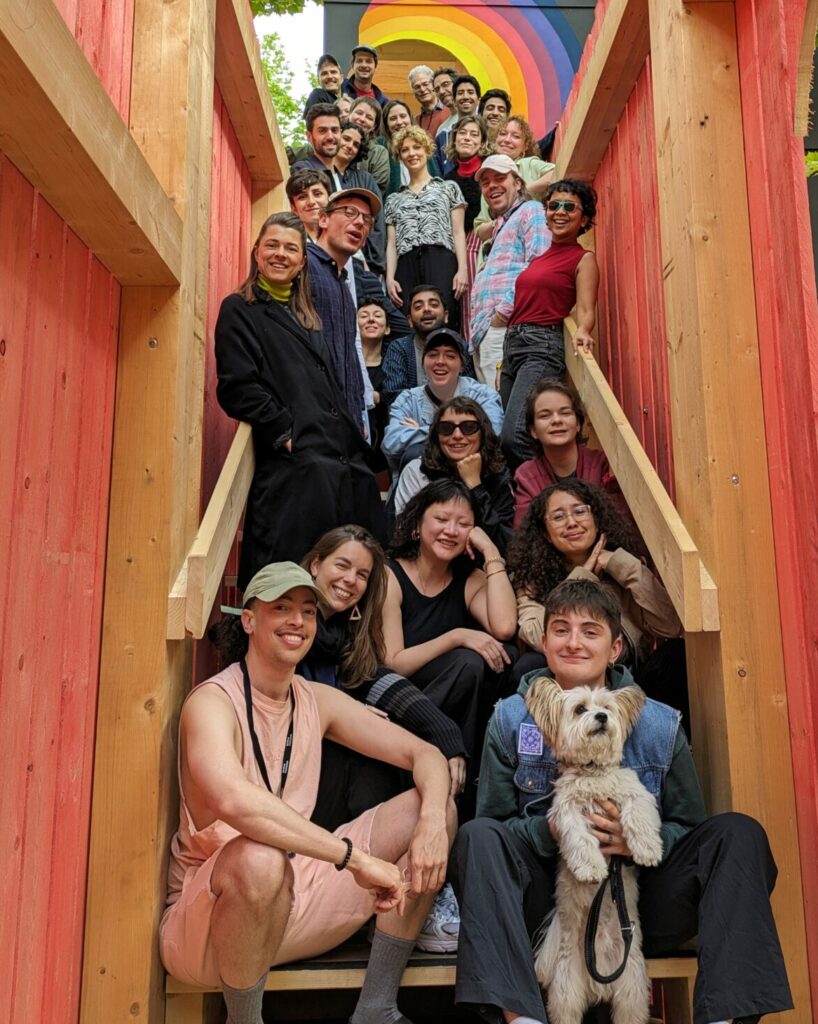
For Farhan, the upshot of using the Internet as a space for performances like this is that collaboration can go global, even under an authoritarian regime: “I wanted to create a dialogue between cultures. My audience and collaborators are not just in Iran.”
The participants cook lunch for each other every day
In the spirit of this dialogue between cultures, the forum participants also cook lunch for each other every day and use an extended lunch break to informally continue sharing ideas. On the menu today are potato soup and pancakes — and among the cooks is Polina Solotowizki, a Heidelberg-based director with Russian-German-Jewish roots who used to live and work in Moscow. While she is also critical of certain aspects of the German theatre scene, she bemoans the situation for theatre in Russia.
“Over the last few decades, there was a great need to talk about politics in Russia — and theatre was a space for that,” she says over a bowl of soup. “But political theatre is not possible in Russia any more. A lot of topics connected to identity are forbidden in Russia — queerness, national belonging, political positioning. And for me, identity is the central issue for theatre. I hope that Russian theatre will have an opportunity to reflect on this topic again.”
Experience in sexism, racism and discrimination
The participants of the International Forum do not shy away from telling their own stories and reflecting their own identities in their theatrical creations. After all, they have in some cases experienced sexism, racism and discrimination in their work because of who they are, including in Germany. In spite of this — or perhaps because of this — it is no contradiction for them to both try to find universality in their work, while also embracing their individual lived experiences.
“The more particular you make your art, the more it can be related to someone else’s,” Argentinian Dana says as the lunch break winds down and the participants head back to more workshops. It is certainly a good reminder, at this point of the Theatertreffen festival, that the best pieces of theatre do not apologise for their glorious specificity. As Selena from Shanghai puts it: “Noone lives in a vacuum, everyone lives in a context. The personal is always political.”
